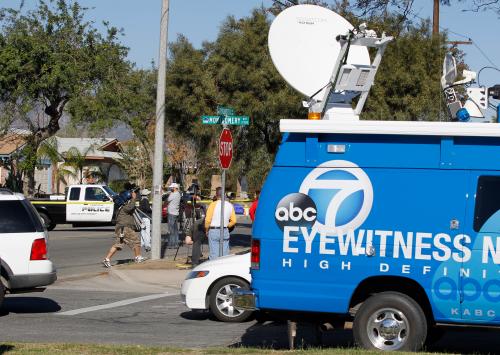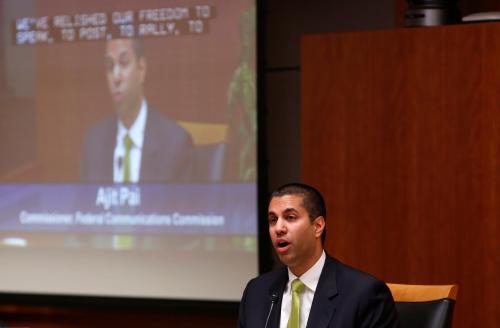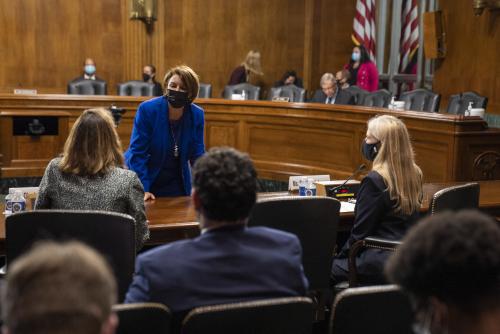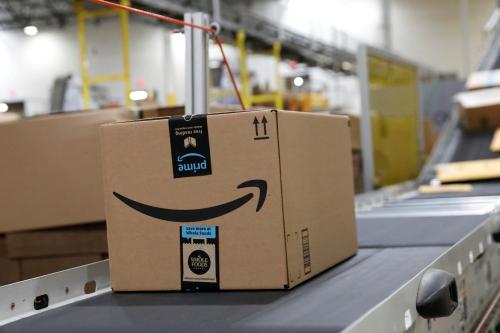Tom Wheeler served as the 31st Chairman of the Federal Communications Commission from 2013-2017.
Two recent headlines have put in context the real-life importance of the seemingly arcane, legalistic and academic debate regarding the nation’s television ownership policies.
“Competition between TV stations spurs investigative journalism,” read the Columbia Journalism Review headline. A new report found that between 2013 and 2015 “stations in more competitive markets were significantly more likely to produce investigative journalism, and more likely to produce good investigative journalism.”
“Historically, investigative TV news has been seen as a ‘loss leader’ – important to democracy because of its ability to hold powerful institutions accountable, but not popular enough to justify the high cost,” the study observed. The Trump FCC has ignored how local competition for viewers has always stimulated local news reporting as an important component of democracy.
Of course, supporting democratic activity forms the basis for the public interest obligation of broadcasters. The government gave the people’s airwaves to broadcasters free of charge so they might serve the public interest, especially as a voice of local news and information. The National Association of Broadcasters celebrates this “localism” as they lobby in behalf of their members.
Localism, however, has always conflicted with corporatism. It is natural and understandable that corporate interests would minimize competition to maximize profits. That is why the FCC has historically written rules to protect local broadcast competition and stimulate localism. The key to that competition was a diversity of local owners, each vying for the viewers’ attention by doing a better job reporting on their community. However, those protections are now in the crosshairs of the Trump FCC.
Shortly after the president’s inauguration, the Trump FCC rescinded the rules that restricted “joint service agreements” (JSAs) among local broadcasters. These JSAs were a concoction of creative lawyers to undermine the Commission’s ownership policy favoring competition. The lawyers invented the legal fiction that local broadcasters could remain competitive even after agreeing that a single company could take all the revenue and make all the management decisions for multiple stations in a market. Cutting local newsrooms and expensive investigative projects was usually an early result of this charade.
The pending acquisition by Sinclair Broadcasting of the local stations of Tribune Broadcasting will no doubt have a similar effect. Already, the FCC has loosened its rules in order to facilitate this transaction. Having weaseled around the policies that would have previously barred this consolidation, Sinclair now awaits the agency’s formal approval.
When Sinclair controls access to 72 percent of all American households after the merger, the situation will become even worse for localism. In place of local journalism, Sinclair forces ideological “must run” content on the stations they own. In such “an era of extreme consolidation,” the CJR-reported study forecasts, investigative journalism, “could shrink even lower.”
Declining local TV news viewership
The second headline, “New Pew study says local TV news viewing dropping fast,” should come as no surprise. Americans are deserting local TV news for the internet, the Pew Research Center concludes. The internet is having an impact, but as broadcasters turn away from differentiated products driven by competition, why should we be surprised consumers are fleeing?
This situation reflects a market failure on the part of broadcasters and their self-professed dedication to localism, since the internet’s biggest failing is local news. Despite many online local news efforts, none has effectively substituted for local TV news. The resulting void should represent an opportunity for local broadcasters, but they have ignored it so far.
At the 2014 convention of the National Association of Broadcasters, I urged the assembled executives to see the failure of local internet news as their opportunity. When I was a venture capitalist, I told the crowd, I had looked at local news internet companies and concluded that they failed for two reasons: the need for boots-on-the-ground reporting and constant promotion – both of which broadcasters possessed in abundance. I went on to explain to the broadcasters how the FCC’s upcoming net neutrality order would ensure open access to the necessary broadband networks, even though the broadcasters’ adversary, cable operators, principally controlled broadband. The silence of the executives’ response was deafening.
Broadcast television, both the medium created to deliver local news and the industry that touts its dedication to such localism, is failing to meet its local responsibilities precisely when new technology is also failing local needs. Once competitive broadcast localism is lost, it is unlikely to return.
If people are not watching local TV for local news and information, then the entire rationale for giving away the public’s airwaves evaporates. Awarding the scarce and valuable spectrum was justified based on its public service benefits, not for the delivery of reality TV or sitcom reruns.
Historically, the FCC has carried out its congressional charge to uphold the public interest in the airwaves by protecting broadcaster’s obligation to localism. Unfortunately, the Trump FCC is now proceeding to dismantle the policies that made American broadcasting great. The beneficiaries will be the big corporate broadcasters. The losers will be American viewers and democratic values.







Commentary
Destroying what made American broadcasting great
January 10, 2018